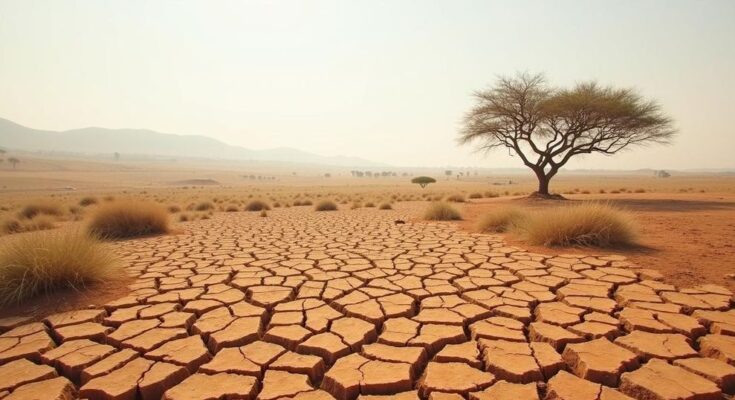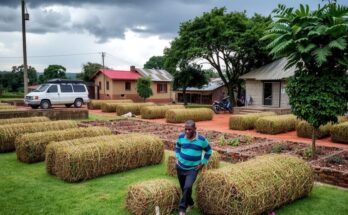Southern Africa is experiencing a major crisis due to the 2023/2024 El Niño, which has led to severe drought conditions, crop failures, and widespread food insecurity affecting approximately 23 million people. The region faces significant health risks, including malnutrition among children, disease outbreaks, and increased displacement, necessitating urgent humanitarian assistance and improved emergency responses.
The region of Southern Africa is currently grappling with an unprecedented crisis stemming from the 2023/2024 El Niño event, which has resulted in severe drought conditions that are being regarded as the worst in the last four decades. Characterized by delayed rainfall, prolonged dry spells, and soaring temperatures, this phenomenon has led to alarming consequences for local communities already facing dire socio-economic challenges. Reports indicate that crop failures have left many populations facing food shortages and limited access to potable water, exacerbating health issues within the region. Recent assessments by national governments and FEWS NET indicate that the drought has drastically impacted maize yield across Southern Africa, creating a stark contrast to previous five-year averages. Consequently, approximately 23 million individuals are predicted to experience heightened food insecurity, with the countries of Malawi, Zambia, Zimbabwe, and Mozambique being the most severely affected. Urgent humanitarian assistance is required for an estimated 14.0 to 14.9 million people during the critical lean season from October to December 2024. Moreover, national drought disasters have been declared in six countries: Botswana, Lesotho, Malawi, Namibia, Zambia, and Zimbabwe, while approximately 1.8 million people in Angola and 3.3 million in Mozambique are also affected by food insecurity. The situation is particularly alarming for children, with estimates suggesting that over 2 million are acutely malnourished, including more than 500,000 suffering from severe wasting. The drought has precipitated the displacement of thousands, widespread disease outbreaks, and severe agricultural disruption. The region faces additional challenges from ongoing cholera epidemics and emerging health threats, such as mpox, potentially straining resources needed for drought response efforts. As the drought unfolds, the risks of HIV and AIDS transmission, mental health crises, and increasing incidents of gender-based violence rise, particularly highlighting the urgent need for strengthened response strategies. The intersection of climate-driven disasters, disease outbreaks, and socio-political tensions continues to burden health systems in Southern Africa and hinders access to critical sexual and reproductive health services. Consequently, over one million people have been displaced internally, predominantly from Malawi, Mozambique, and Zimbabwe, illustrating the profound impact of climate change in conjunction with health crises.
Southern Africa is undergoing one of the most severe droughts in years due to the El Niño phenomenon, which has historically resulted in extreme climate conditions in the region. This event, coupled with existing socio-economic strife, has intensified food insecurity, health challenges, and displacement. Governments and organizations are struggling to manage the consequences, particularly as communities deal with failed harvests and the compounded effects of epidemics like cholera.
The El Niño-induced drought in Southern Africa presents a multifaceted crisis affecting millions of lives. Immediate humanitarian aid is essential to address food insecurity and malnutrition. The connection between the ongoing health emergencies and the drought underscores the necessity for enhanced emergency preparedness and response to safeguard the health and well-being of affected populations. Coordinated efforts are crucial to mitigate the adverse effects of climate change and ensure sustainable recovery for the vulnerable communities in the region.
Original Source: reliefweb.int




